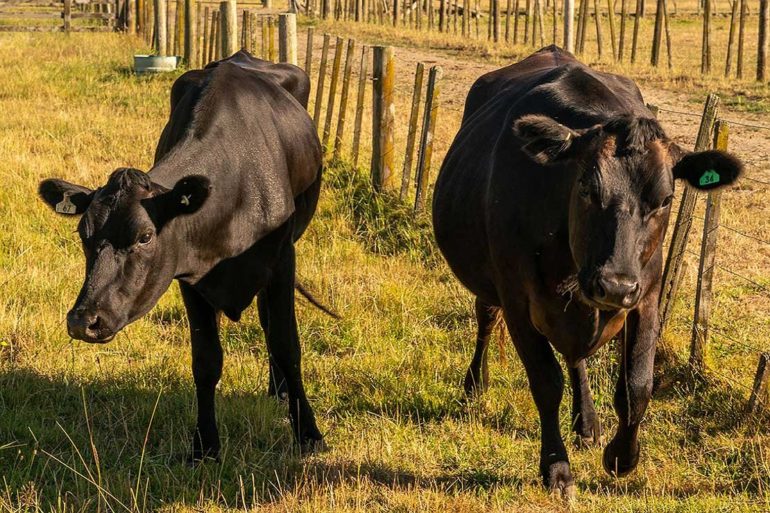Genetic disorders compromise the welfare of farm animals and have impacts on the production and management of these animals. One such way of reducing this risk is to map the genes responsible for different syndromes. However, until now, this has been a reactive process, with farmers alerting vets or breeding companies once a genetic disorder is suspected, and researchers then aiming to confirm the disorder by gathering information on the phenotypes and genotypes of select individuals to try and identify the cause.
A new study recently published in the prestigious scientific journal Nature Genetics by researchers at Massey University and Livestock Improvement Corporation (LIC) has now turned this process on its head, leveraging ever-growing genomic sequence data to proactively investigate animals’ differences in production traits resulting from genome sequence variants. Having identified these outlier animals, further investigation highlighted effects that had otherwise gone unnoticed.
The paper’s lead author, Ph.D. student Edwardo Reynolds studying at Massey’s AL Rae Centre of Genetics and Breeding at Ruakura says, “These are very exciting discoveries. It’s proof that we can identify new genetic disorders proactively and demonstrates a viable means of further enhancing the health and productivity of New Zealand dairy animals.”
Research leader at LIC, and Massey Professor in Animal Genetics Matt Littlejohn supervised the research, and says, “We were surprised at the number and scale of effects. Edwardo’s publication of this work in one of the world’s best biology journals is also a very significant achievement for such an early career scientist.”
Professor Dorian Garrick, co-supervisor of Mr Reynolds and chief scientist at the AL Rae Centre says, “The research demonstrates the value of academia and industry working together and the benefits that can be developed for farmers when pure and applied sciences are used to tackle real-world problems.”
The team found six recessive variants with effects ranging from mild (slight loss of body condition with limited other impacts) to major (approximately 25 percent reduction in bodyweight and increased early-life mortality).
Beyond the bodyweight effects that led to the discoveries, many other impacts including lower milk production (approximately 1000 liters of milk per lactation for the biggest effect variant), lower milk solids (75kg less per lactation for the biggest effect variant), smaller stature, smaller chest circumference, and other anatomical changes were also identified.
Professor Littlejohn says knowledge of these variants can now be used to help manage the frequencies of the variants through genetic testing.
Genetic link between cattle temperament and autism
More information:
Edwardo G. M. Reynolds et al, Non-additive association analysis using proxy phenotypes identifies novel cattle syndromes, Nature Genetics (2021). DOI: 10.1038/s41588-021-00872-5
Citation:
Study takes genes-first approach to mapping livestock diseases (2021, May 28)
retrieved 30 May 2021
from https://phys.org/news/2021-05-genes-first-approach-livestock-diseases.html
This document is subject to copyright. Apart from any fair dealing for the purpose of private study or research, no
part may be reproduced without the written permission. The content is provided for information purposes only.
